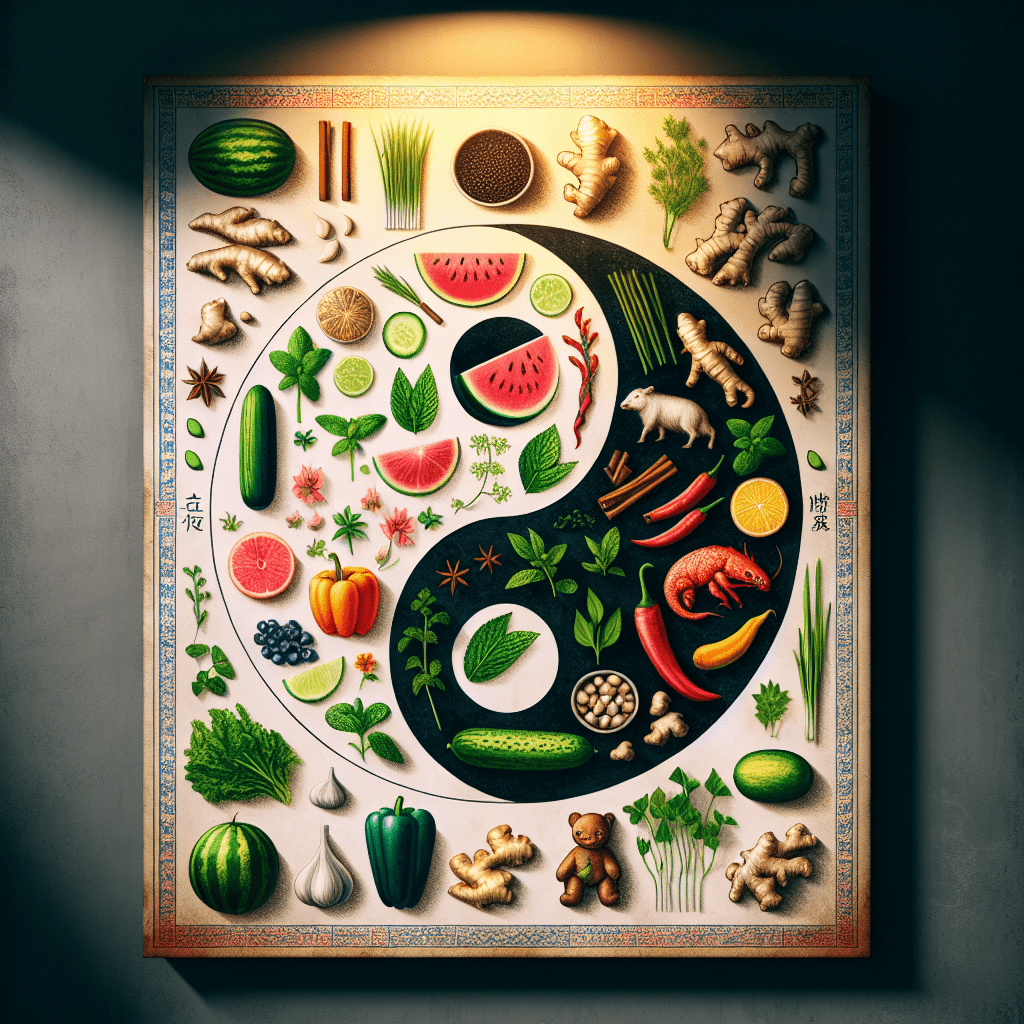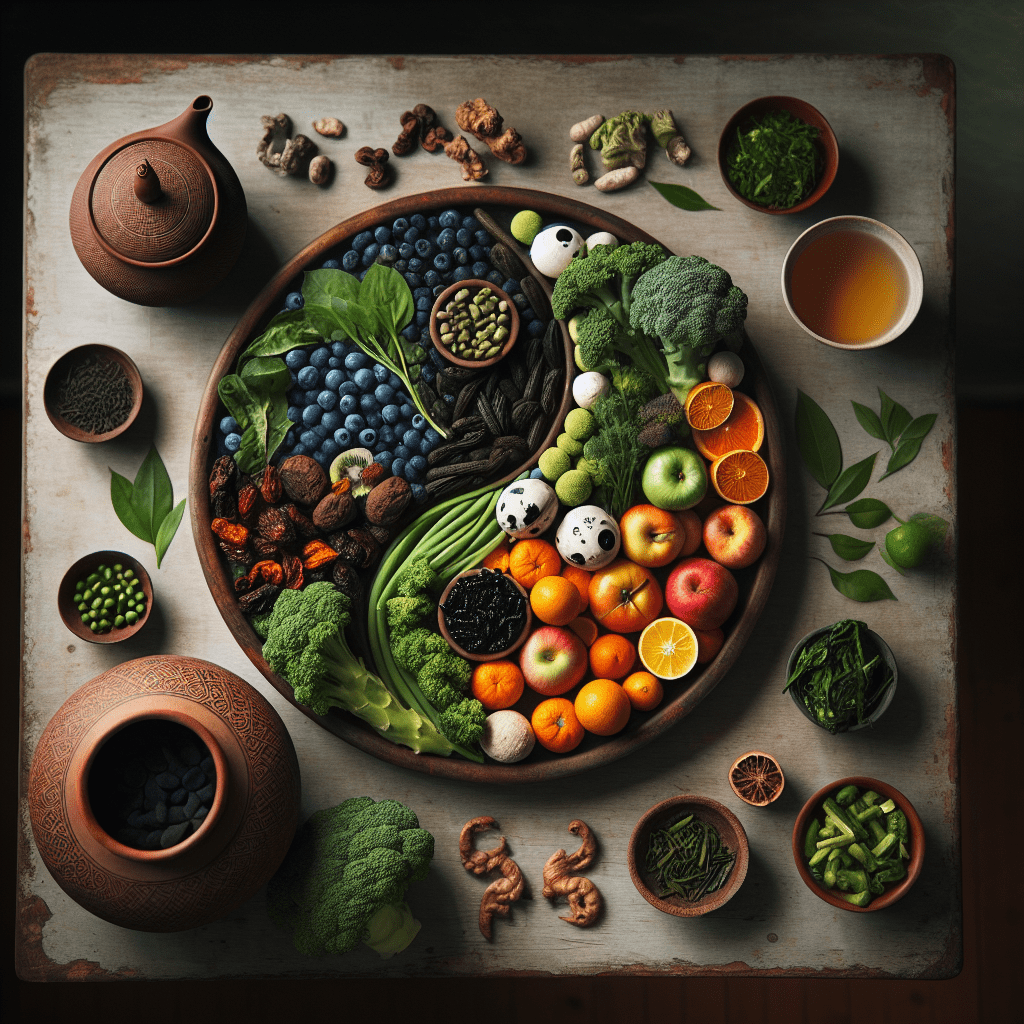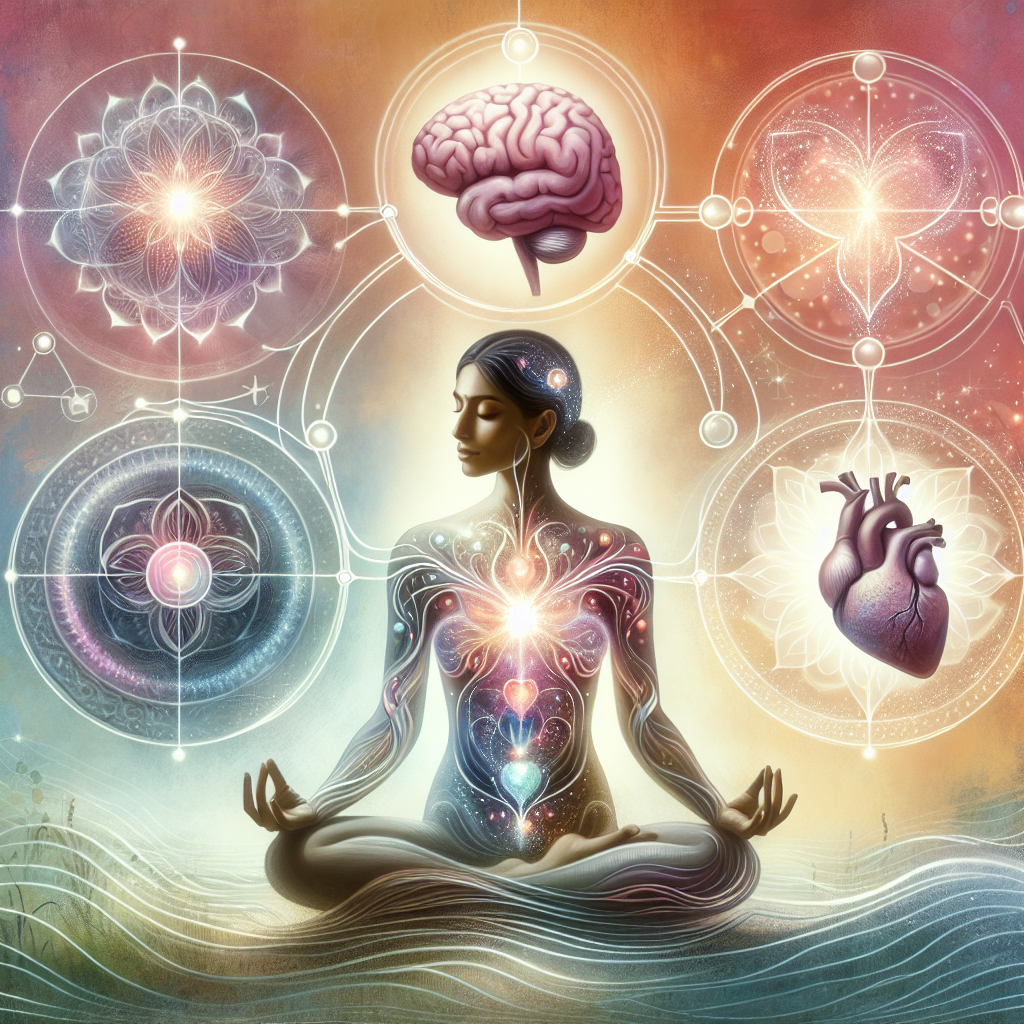Have you ever wondered why some people seem to naturally glow with health while others struggle despite following the latest diet trends? The answer might be simpler than you think. Ancient Eastern wisdom has long held the secret that your kitchen can be your medicine cabinet, and you can be your own best nutrition coach.
In today’s world of conflicting dietary advice and quick-fix solutions, more people are turning to time-tested approaches that view food not just as fuel, but as powerful medicine. This growing interest in holistic health isn’t just a passing trend—it’s a return to wisdom that has sustained civilizations for thousands of years.
Eastern healing traditions offer us a treasure trove of insights that can transform our relationship with food. These aren’t complicated regimens requiring exotic ingredients or strict rules. Rather, they’re intuitive principles that help us tune into our bodies’ unique constitutional needs and the natural rhythms around us.
The Holistic Approach of Eastern Medicine Nutrition
Unlike the Western approach that often reduces food to its nutrient components—proteins, carbs, vitamins—Eastern medicine takes a holistic view where food is seen as an integral part of maintaining harmony within the body. Traditional Chinese Medicine (TCM), for instance, doesn’t separate nutrition from medicine; they’re two sides of the same coin.
“Food and medicine share the same origin,” goes an ancient Chinese saying. This perspective sees the body as an interconnected ecosystem where what we eat directly influences our physical, mental, and spiritual well-being.
As your own nutrition coach, understanding this interconnectedness is your first step toward true health mastery. Eastern nutrition doesn’t focus on quick fixes or isolated problems but aims to create balance throughout your entire system.
The foundation of this approach lies in recognizing how different foods affect your body’s energy, or “Qi.” Every meal is an opportunity to either strengthen or deplete this vital force. When you become attuned to how foods impact your energy levels, mood, and overall vitality, you’re practicing the art of being your own nutrition coach.
Secret #1: Seasonal Eating for Optimal Health
Nature has a rhythm, and our bodies are designed to flow with it. One of the most powerful principles from Eastern medicine is aligning your diet with the seasons. This isn’t just about enjoying fresher produce—it’s about harmonizing your body with the energy of the natural world.
In spring, when new growth emerges, light, leafy greens help cleanse the liver and prepare the body for more activity. Summer calls for cooling foods like cucumber, watermelon, and mint to balance the external heat. Autumn brings harvest foods that help transition to the cooler months, while winter demands warming, slow-cooked meals that nourish deeper energy reserves.
As your own nutrition coach, ask yourself: “What is nature offering right now?” Local, seasonal eating isn’t just environmentally friendly—it’s biologically appropriate. Your body intuitively knows what it needs in each season.
For example, in winter, warming foods like ginger, cinnamon, and root vegetables support your body’s need to conserve heat and energy. These foods take longer to grow and typically contain more calories and nutrients needed for the colder months. Contrast this with summer’s quickly-growing fruits that provide cooling hydration when your body needs it most.
By following this natural cycle, you’re not fighting against your environment but flowing with it—a core principle of Eastern wellness that any good nutrition coach would emphasize.
Secret #2: Understanding the Energetic Properties of Foods
Beyond their nutritional content, Eastern medicine classifies foods based on their energetic properties. This ancient system might sound mystical, but it’s actually quite practical when you begin to observe how different foods make you feel.
Foods are categorized as warming, cooling, or neutral:
Warming foods like ginger, cinnamon, lamb, and most nuts increase circulation and warm the body from within. They’re beneficial for people who feel cold easily or have slow digestion.
Cooling foods such as cucumber, watermelon, leafy greens, and most fruits have a refreshing effect and clear heat from the body. They help those who run hot or experience inflammation.
Neutral foods like rice, most grains, and certain vegetables balance the body without strongly pushing in either direction.
Foods are further classified by their ability to address “dampness” in the body—a concept unique to Eastern medicine that relates to issues like bloating, foggy thinking, and heaviness. Damp-forming foods like dairy, excess sweets, and refined flours can create stagnation, while damp-clearing foods like aduki beans, bitter greens, and certain herbs help restore flow and clarity.
As your own nutrition coach, learning to identify these qualities helps you choose foods that address your specific imbalances rather than following generic advice. Someone who feels constantly cold and tired needs very different foods than someone who runs hot and restless.
Secret #3: Preventative Health Through Wise Food Choices
Eastern medicine doesn’t wait for illness to appear before addressing it. The nutrition coach approach in Eastern traditions is fundamentally preventative, using food to maintain balance before problems arise.
“Superior doctors prevent illness, mediocre doctors treat impending illness, inferior doctors treat actual illness,” states a classic TCM text. This philosophy places enormous value on daily nutrition choices as the foundation of lasting health.
Fresh, natural ingredients form the cornerstone of this preventative approach. Processed foods with artificial additives are seen as disrupting the body’s natural intelligence. By contrast, whole foods in their natural state provide clear signals that your body recognizes and can use efficiently.
Mental clarity is also closely linked to diet in Eastern traditions. Certain foods are prized for their ability to nourish the brain and spirit—like walnuts (which even resemble the brain in appearance), small amounts of good quality tea, and foods prepared with mindful intention.
As your own nutrition coach, consider food as your daily medicine. The cumulative effect of what you eat creates either health or imbalance over time. This perspective transforms ordinary meals into powerful tools for well-being.
Secret #4: Supporting Digestion Through Food Selection
In Eastern medicine, strong digestion is considered the foundation of good health. The concept of “digestive fire” or “spleen energy” in these traditions closely mirrors what modern science now recognizes about the importance of gut health for overall wellness.
Easily digestible foods form the basis of a balanced diet. This doesn’t mean bland or boring meals, but rather thoughtfully prepared dishes that support rather than tax your digestive system. Simple cooked vegetables, modest portions of protein, and well-prepared grains provide nourishment without overwhelming digestive capacity.
Herbs and spices play a crucial role here. Ginger, fennel, cumin, and coriander aren’t just flavor enhancers—they’re digestive aids that help transform food into usable energy. Incorporating these into daily cooking is a simple way to become your own nutrition coach, supporting optimal digestion with each meal.
The Eastern approach also recognizes that how you eat matters as much as what you eat. Rushed meals eaten while stressed or distracted are poorly digested, while food eaten in a calm, appreciative state nourishes more deeply. Taking a few deep breaths before eating and expressing gratitude for your food activates the parasympathetic nervous system, which optimizes digestion.
Secret #5: Individualized Nutrition Based on Your Constitution
Perhaps the most revolutionary aspect of Eastern nutrition is its deeply personalized approach. While modern diets often prescribe one-size-fits-all solutions, Eastern traditions recognize that each person has unique nutritional needs based on their constitutional type.
In TCM, these constitutional types relate to the Five Elements theory, where individuals may have affinities with Wood, Fire, Earth, Metal, or Water elements. Each element corresponds to different organ systems, emotions, and dietary needs. Similarly, Ayurvedic medicine identifies three primary constitutions or “doshas”: Vata, Pitta, and Kapha.
As your own nutrition coach, understanding your predominant constitutional type offers profound insights into what foods will best support your health. Someone with a “Fire” constitution prone to inflammation requires different foods than someone with a “Water” constitution who tends toward coldness and fear.
This individualized approach explains why some people thrive on raw foods while others feel depleted by them, or why some need substantial protein while others do better with more plant-based options. Your body’s unique needs are your most reliable guide, and learning to interpret its signals is the heart of becoming your own nutrition coach.
The Mind-Body Connection: How Food Affects Emotional Wellness
Eastern nutrition recognizes that food impacts not just physical health but emotional and mental states as well. Certain foods are known to calm the spirit, while others may aggravate anxiety or depression.
For example, excessive spicy foods may increase irritability in already-fiery individuals, while warming foods can help lift the spirits of someone prone to melancholy. Overly sweet foods might temporarily boost mood but often lead to emotional crashes later.
Mindful eating practices help strengthen this mind-body awareness. By slowing down and fully experiencing your food—its aroma, texture, flavor, and the feelings it evokes—you gather valuable information about how different foods affect your unique system.
As your own nutrition coach, this awareness allows you to make choices not just for physical nourishment but for emotional balance. Food becomes a tool for regulating mood and energy throughout the day, creating more stable emotional states naturally.
Becoming Your Own Nutrition Coach with Ancient Wisdom
These five ancient secrets—seasonal eating, understanding energetic properties, preventative nutrition, digestive support, and individualized approaches—form a comprehensive framework for becoming your own best nutrition coach.
By integrating these principles into your daily life, ordinary meals transform into powerful medicine, supporting your body’s innate healing abilities and promoting balance at every level. The beauty of this approach is its simplicity and sustainability—it doesn’t require expensive supplements or complicated rules, just a return to natural wisdom that has stood the test of time.
Today’s technological advances can actually enhance our application of these ancient principles. EASTCHI AI from HerbalsZen represents a fascinating bridge between traditional Eastern medicine and modern technology, offering personalized guidance based on your constitutional type and current conditions. By combining AI capabilities with 2,000-year-old wisdom, it’s now easier than ever to apply these timeless principles to modern life.
As you embark on your journey as your own nutrition coach, remember that this is a practice of self-discovery rather than rigid rules. The most powerful aspect of Eastern nutrition is how it teaches you to listen to your body’s wisdom and respond with appropriate food choices. When you eat according to these principles, you’re not just nourishing your body—you’re harmonizing with the natural world and cultivating health that extends far beyond physical wellbeing.
Your kitchen truly can be your medicine cabinet, and with these ancient secrets, you now hold the key to transforming everyday foods into powerful tools for lifelong wellness.



